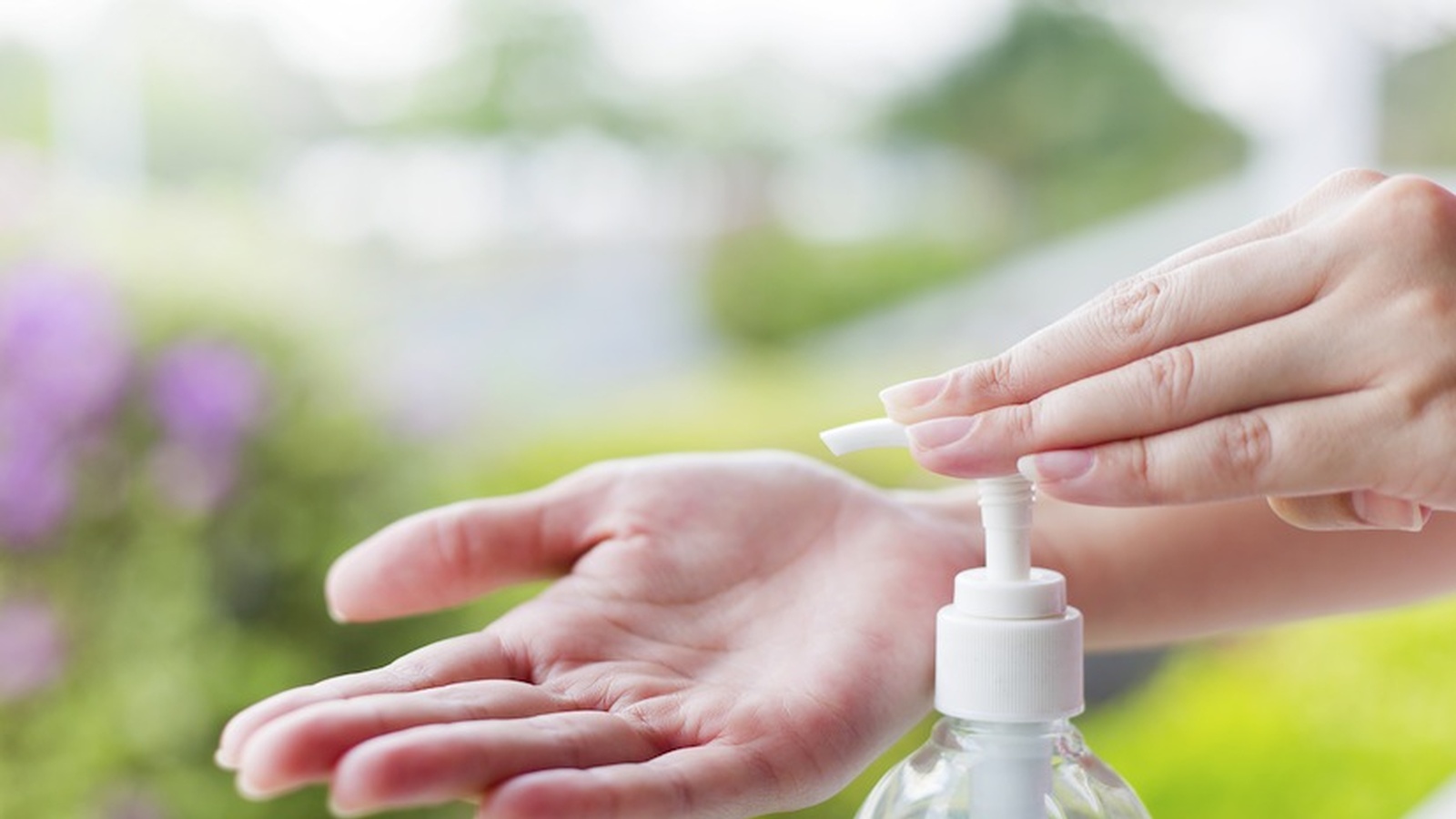7 Reasons Why You Should Avoid Hand Sanitizers (And What to Use Instead)
It wasn’t that long ago that we didn’t have hand sanitizers. Instead, every time our hands got dirty, we headed for the nearest sink. If there wasn’t one around—well, a quick wipe on the jeans would do.
Then, in the 1990s, hand sanitizers started to become popular. Suddenly, we had a quick, on-the-go way to banish germs. Since we were all really into getting things done fast by that time—and we were obsessed with being germ-free—it seemed the perfect solution. Germ-free hands in seconds.
On the plane. In the car. At the playground. Before touching the shopping cart. After shaking hands with someone who had a cold. It seemed there was no end to the many ways hand sanitizer could help us stay clean and healthy.
And then came the devastating news…hand sanitizers are actually really unhealthy for us. (Oh, and they’re horrible for your skin, too.)
Use them often enough, and you’ll accelerate the appearance of aging. Why? We’ll explain that below. Meanwhile, don’t think you have to give up on convenient germ-killing, as we have much better options for that, too!
How Do Hand Sanitizers Work?
Hand sanitizers were actually invented by those who work in the medical field. In the hospital, it’s vital to keep hands free of bacteria and viruses, to avoid spreading them from patient to patient. As doctors and nurses are often rushed in their daily activities, hand sanitizers can really come in handy.
It was in the mid 1900s that researchers discovered alcohol (a primary germ killer) could be delivered in a gel to provide quick and easy cleansing when there’s no time or access to soap and warm water.
Soap and water kill and flush germs from skin. Hand sanitizers, on the other hand, work by sitting on skin and killing germs on contact. They only work, however, if they have enough alcohol to kill the germs—at least 60 percent, according to the Centers for Disease Control and Prevention (CDC). That means a lot of alcohol on your skin (which is horrible for its health and appearance, but more on that later).
Once you apply the alcohol, it begins to evaporate, and it’s through this evaporation that germs are killed. If you dry off the sanitizer before it evaporates all the way, you’re actually reducing its effectiveness.
What’s Wrong with Hand Sanitizers?
Though the occasional use of a hand sanitizer isn’t going to hurt you, regular use over time can cause a lot of problems:
Dry skin: We told you about the dangers of alcohols in skin care in a previous post. The alcohols used in hand sanitizers include isopropyl, ethanol, and n-propanol. These are the drying alcohols we told you about. They irritate the skin, strip away it’s natural oils and acid mantle, dehydrate cells, and increase risk of contact dermatitis.
Accelerated aging: All those drying effects can lead to increased appearance of fine lines and wrinkles, as well as calluses, cracks, and flakiness. Over time, alcohols can disrupt the natural barrier function, reducing skin’s ability to protect itself, and leading to increased dehydration.
Damaged skin: Scientific studies have shown that alcohols can actually damage skin cells.
Antibiotic resistance: Many hand sanitizers these days are made with triclosan (more about triclosan in this post). This antibacterial has been found in animal studies to disrupt hormone function. It’s also connected to the rise of so-called “superbugs”—bacteria and viruses that can resist antibiotics. The CDC announced in 2013 that the rise of superbugs (as a result of overuse of antibiotics) was a serious threat to human health, and had caused at least 23,000 deaths that year.
Unknown chemicals: Many hand sanitizers are made with chemical fragrances. Since manufacturers are not required to list fragrance ingredients on the label, you don’t know what you’re exposing yourself to. Many fragrances are irritating and have been linked to allergies and hormone disruption.
Weakened immune system: We think we’re reducing our risk of getting sick when we use hand sanitizers, but they can actually weaken the immune system. Studies have shown that ultra-clean environments—particularly early in life—can contribute to reduced immune defenses later on.
They just don’t work as well: The FDA states that currently, there is no evidence that antibacterial soaps (and sanitizers) are any more effective than regular soap and warm water in helping to prevent the spread of germs. A 2000 study found that sanitizers do not significantly reduce the amount of bacteria on the hands, and may actually even increase it. Researchers added that the products strip the skin of its natural oils—and since those oils usually prevent bacteria from coming to the surface, the sanitizer can actually reduce the skin’s own defenses.
What To Do Instead
If you want to get germs off your hands, washing your hands the old fashioned way is your best bet. Our Rosemary Body Wash makes an amazing hand wash. It has natural antimicrobial ingredients and won’t dry out your skin. If you love the convenience of an on-the-go solution—or if you’re going to be on an airplane or another high-traffic area where cleaning germs is a good idea for your overall health—try one of these alternative solutions.
Choose a natural option: We looked for natural and organic hand sanitizers. There aren’t many out there to choose from yet, unfortunately. Most still contain alcohol (ethanol) as the main ingredient. Even organic brands use high concentrations of it for the germ-killing properties. We finally found one made by CleanWell that has an awesome ingredient list. If you find more alcohol-free options, please share them with our readers!
Make your own: There are a number of recipes online. We found one at DIY Natural that uses the natural germ-killing powers of lavender, tea tree oil, witch hazel extract, aloe, and vitamin E oil. Other options include lemon and lime. Mix them all together with a bit of water in a small spray bottle and take with you when needed.
Wear gloves: If you’re going on a plane ride or somewhere else and you’re really concerned about germs, try wearing gloves. They’ll protect your hands from picking up bacteria and viruses.
Have you stopped using hand sanitizers?
If you haven’t already, join our free global challenge at www.GetOffTheGluten.com to receive daily recipes & health tips, access to our private group for support and inspiration, plus before and after testing to track your progress in key areas of your life such as weight, sleep, bloating, skin-conditions, mental health and more!










